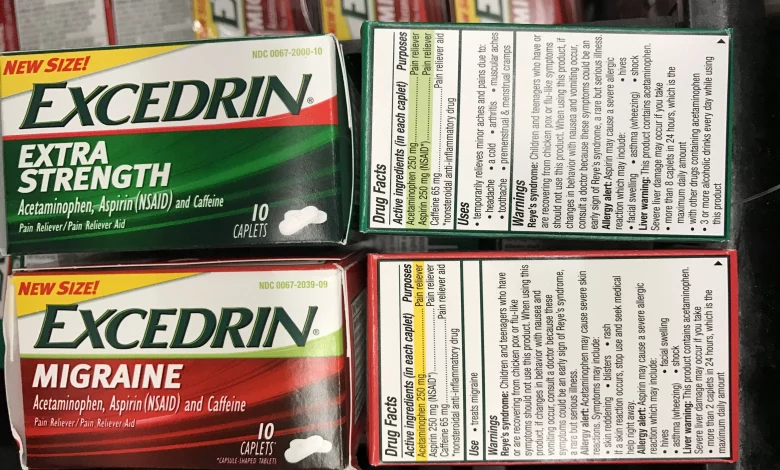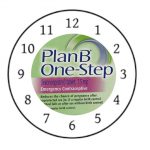How Long Does Excedrin Migraine Stay In Your System?

Excedrin is an over-the-counter headache pain reliever, typically in the form of tablets or caplets. It contains paracetamol (acetaminophen), aspirin, and caffeine.
Excedrin was one of the top ten selling over-the-counter medicine brands in the United States. Other brands on the market now contain the same combination of drugs, such as the Roter APC tablets available in Europe.
The brand became known for advertisements where it cured especially unpleasant and excruciating headaches (called “Excedrin headaches” in the ads, and later called “Excedrin tension headaches”).
Researchers estimate that as many as 2 in 3 adults in the U.S. get tension headaches. Chronic tension headaches are much less common. They affect an estimated 3% of adults. Women get tension headaches more often than men.
How should I take Excedrin Migraine?
Excedrin Migraine is typically taken right away, when symptoms first begin. Adults can take 2 caplets or gel tabs with a glass of water in any 24-hour period unless directed by a healthcare provider. For some people, Excedrin Migraine can start relieving migraine pain in as little as 30 minutes.
For children or teenagers under 18 years of age, you’ll want to talk to a provider before use. Since Excedrin Migraine contains aspirin, there is a risk of Reye’s syndrome, a rare but serious illness that can occur if children or teenagers who have had a recent viral infection like chickenpox or the flu use Excedrin Migraine. Also, avoid giving aspirin or aspirin-containing products to children under 12 years old.
How long does Excedrin Migraine last, and how often can I take it?
Migraine attacks can last anywhere from 4 to 72 hours, with symptoms and duration varying person to person. In three studies, the combination of acetaminophen, aspirin, and caffeine significantly reduced migraine pain intensity compared to placebo 1 to 6 hours after taking the dose. The combination reduced pain to mild or none for 59.3% of participants at 2 hours and 79% of participants at 6 hours (50.8% were pain free).
As far as frequency, you should not take more than 2 caplets or gel tabs within a 24-hour period. Talk to your provider If your symptoms persist or worsen.
How long does Excedrin Migraine stay in your system?
There are several factors that come into play when estimating how long Excedrin will stay in your system because every patient has physiology unique to them. Here are some major factors you should consider when trying to understand how long Excedrin will stay in your body:
• Age: Typically, the younger you are, the more efficient your body functions are. The more efficient your body functions, the faster Excedrin will be removed from your system.
• Amount: The higher the dose of Excedrin you have been taking, the longer Excedrin will take to be removed from your system.
• Genetics: Genes predispose people to different metabolic functions, which is a key factor in how your body processes medications like Excedrin. For this reason, your genetic makeup comes into play when estimating how long Excedrin will remain in your system.
• Kidney and liver functions: The liver and kidneys eliminate everything you ingest, and Excedrin is no exception. If your liver or kidneys are damaged, it will most likely take longer for your body to remove the Excedrin from your system.
• Metabolism: Your metabolism determines how quickly you process foods, liquids, and drugs such as Excedrin. If your metabolism is slow, it will take longer for your body to process and eliminate Excedrin from its system than someone with a fast metabolism.
• Usage frequency: The longer you have been taking Excedrin, the longer it will remain in your system. For example, it will take longer for someone who has taken Excedrin for several years to remove Excedrin from the body than someone who has only been taking Excedrin for a few months.
According to studies, the different ingredients in Excedrin Migraine have different half-lives, the half-life of acetaminophen is approximately 2 to 3 hours after therapeutic doses, yet can be increased to more than 4 hours in patients with hepatic injury, caffeine has a half-life of about 5 hours while the plasma half-life of aspirin the last ingredient in Excedrin Migraine is only 20 minutes.
The half-life of a drug is the time it takes for the amount of a drug’s active substance in your body to reduce by half. Studies indicate that 94 to 97% of a drug will have been eliminated after 4 to 5 half-lives. Thus, it follows that after 4 to 5 half-lives, the plasma concentrations of a given drug will be below a clinically relevant concentration and thus will be considered eliminated. This means virtually all the ingredients in Excedrin Migraine will be eliminated from your body within 24 hours (1 day).
Side effects of Excedrin Migraine
Each of the three drugs in Excedrin Migraine can cause some side effects. Some effects may go away as your body becomes used to the medication. But if any of the common side effects cause problems for you or don’t go away, call your doctor. And if you have any of the serious side effects, call your doctor or 9-1-1 right away.
Common side effects
The more common side effects of Excedrin Migraine can be caused by the caffeine that’s in it. These side effects can include:
• nervousness
• feeling irritable
• sleeping trouble
• rapid heartbeat
Serious side effects
The serious side effects of Excedrin Migraine can be caused by the acetaminophen and aspirin it contains. These side effects can include:
• allergic reaction, with symptoms such as:
o trouble breathing
o itchy, red blisters
o rash
• bleeding in the stomach, with symptoms such as:
o bloody or black and tarry stools
o vomiting blood
o upset stomach that does not improve quickly
This is not a complete list of side effects and others may occur. Call your doctor for medical advice about side effects. You may report side effects to FDA at 1-800-FDA-1088.





